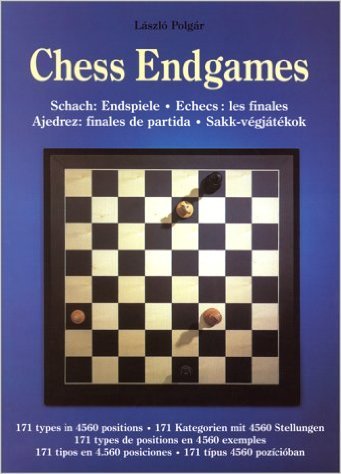Chess Endgames, Laszlo Polgar - download book

Composed endgames appeared as early as the game itself. Chess players of old used to compete with each other by offering composed positions to be solved. Thus composing and solving positions became linked to the idea of competition. In manuscripts by Zairab and Nairn (9th century), and by Al-Adli, Al-Mahdi and Al-Suli (between the 10th and 12th centuries), one can already find positions resembling endgame studies. In 1497, Lucena, author of the first surviving chessbook, published about 100 endgames. Kling and Horwitz collected 226 endgames in 1851 - and most of their analyses are valid to this day. Some 40 years later, Berger's textbook was the first to systematize endgames. Then the Platov brothers Troitzlcy and Kubbel made revolutionary progress, followed by Grigoriev, Rinck, Cheron and many others. Rinck's 1414 endgames, all composed by himself, turned out to be a record number. In recent years, Kasparian has added a dozen or so collections to the ones already in existence. The Encyclopaedia of Chess Endings in five volumes, edited by Matanovic, was another important milestone for chess players in the mid-1980s.
Nowadays computers are involved in chess: there is one data base containing more than 100,000 endgames. Furthermore, they have been useful in developing the theory of endgames. Using a computer, Ken Thompson managed to uncover the secrets of all positions with a maximum of five pieces, thus challenging many a proposition accepted for centuries. Lewis Stiller has already achieved some success with positions including six pieces. Who knows where all this might end!
Author: Laszlo Polgar
Title: "Chess Endgames"
Released: 2002
Format: pdf/rar
Quality: good
Number of pages: 1156
Size: 67 Mb
Comment 0